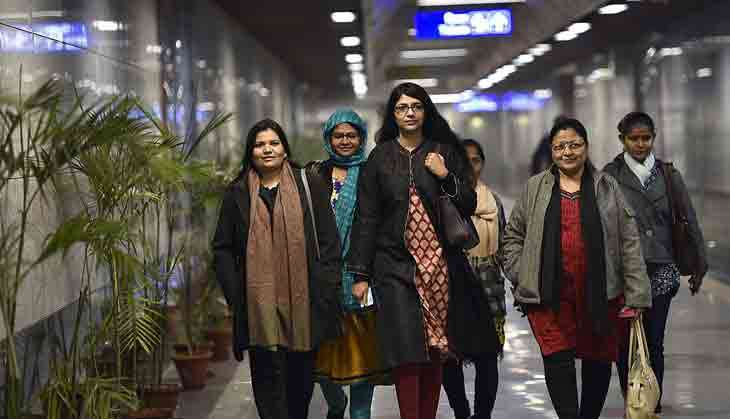DCW responds to anti-corruption 'raid': "Complaints are malafide"

On 18 August, the Anti-Corruption Bureau of the Delhi Police had carried out a search at the Delhi Commission for Women (DCW) office at Vigyan Bhawan, New Delhi. DCW officials, including chairperson Swati Maliwal, had then labelled the operation a 'raid'.
The search was conducted on a written complaint by three officials, including ex-DCW chief Barkha Shukla Singh, who accused the DCW of 'nepotism and favoritism' in appointments, and countermanding rules for recruitment.
The DCW has now sent a rejoinder to the officials at the ACB, along with documents that were sought by the latter.
The crux of the reply
In the reply, DCW informed the ACB that its work had increased tremendously in the past one year, and complaints had increased three-fold. In order to deal with the sheer magnitude of cases, the commission made 'emergent temporary contractual appointments'.
It added that presently, DCW's staff strength was 121, compared to the previous regime's (when Singh was the boss) staff of 42. This includes 90 short-term appointments, of which 75 are presently working in the commission.
It also stated that the appointments had been made to handle exigencies, and were done for a period of three months only. Sixteen such appointments were made when the staff appointed by the previous regime suddenly resigned.
DCW insisted it followed due process, and every employee appointed was well qualified for the job. It explained in its reply that the commission was in the process of "assessing the exact need for staff, and is interacting with the Women and Child Development department for creation of posts, subsequent to which proper and regular appointments will be done to the commission".
The commission also lambasted Singh in its rejoinder, stating that only 49 appointments were made during her tenure, out of which advertisements were given in only nine cases.
It added that many "wives of IAS and IPS officers were appointed in the commission by Barkha Shukla Singh, without giving ads for the posts, who remained in the commission for several years [sic]".
While talking of appointments made by the present dispensation, the reply noted that the commission had appointed acid attack victims, orphans from Nari Niketan and victims of dowry harassment.
It summed up by saying that the present complaint against the DCW was "politically motivated and malafide".
No procedures in place
Ironically, in the same reply, DCW states: "The Commission, in its 20 years of existence, never created any rules and procedures for appointments."
Catch spoke to employees at DCW, who confirmed that there were no guidelines for hiring and appointing people to the commission, and that even in the past, many appointments were made through referrals.
However, Catch did find ads as well as notifications online that called for applications for various job openings, including data operators and legal advisors.
According to two sources, one of whom no longer works with the DCW, in many cases, no interviews or any kind of recruitment process was conducted before employees got the job.
"I didn't even have to sit for an interview, and had I not known someone at the DCW, I probably would have not even known about the opportunity," said one of the sources on the condition of anonymity.
With no due procedure laid down, it is hard to complain about discrepancies in appointments. It would be interesting to see how the ACB reacts after DCW's reply.
Edited by Shreyas Sharma
More in Catch
Anti-corruption cops search DCW office, Maliwal alleges foul play
Complaint filed against DCW chief Swati Maliwal for allegedly misusing her position
Former DCW chief Barkha Shukla Singh slams AAP over party activist's suicide
First published: 26 August 2016, 10:27 IST





![BJP's Kapil Mishra recreates Shankar Mahadevan’s ‘Breathless’ song to highlight Delhi pollution [WATCH] BJP's Kapil Mishra recreates Shankar Mahadevan’s ‘Breathless’ song to highlight Delhi pollution [WATCH]](https://images.catchnews.com/upload/2022/11/03/kapil-mishra_240884_300x172.png)

![Anupam Kher shares pictures of his toned body on 67th birthday [MUST SEE] Anupam Kher shares pictures of his toned body on 67th birthday [MUST SEE]](https://images.catchnews.com/upload/2022/03/07/Anupam_kher_231145_300x172.jpg)






